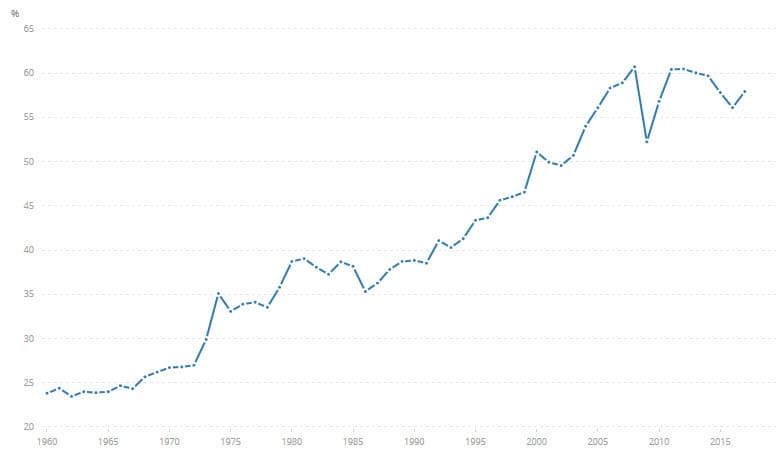After another month of dramatic developments, this week we discuss the potential impact of Brexit on the translation industry. How will the UK’s withdrawal from the European Union affect customers and suppliers in the sector?
Ian:How do you perceive the potential impact of Brexit on the translation industry in Europe, in a broad sense?
Tim:It’s important to understand that our customer base and our supplier base are completely global. We have customers in the US, Canada, Mexico, South Korea, Japan, Australia, China and of course all over Europe, and our translators are based anywhere and everywhere you can think of. The reality however is that our business is largely concentrated in Europe; our largest market is Germany and about 70% of our translators are located within the EU. The way that we interact with our customers and our suppliers is very dependent on being able to interact seamlessly and being inside the EU really helps us.
So there’s at least a theoretical possibility that Brexit could create a real problem for us, but all of the indications are that there won’t be any impact on the mechanics of the business in terms of tariffs or regulations and that it won’t impact our ability to work with freelance translators within the EU.
Ian:Where then do you think might there be some sort of impact from Brexit for people to be aware of, if not on the mechanics of the industry?
Tim:Well it’s possible that those sort of restrictions may result, but as I say the indications are that this is unlikely to happen and that there won’t be any negative impact on the mechanics of the business – but we just don’t know. If we find that there are problems with our customers having to pay tariffs on translation services or if our freelance translators aren’t able to provide their services tariff free to us we would have to do something, the obvious action being to establish a legal entity within the European Union.
We’re obviously hoping that we don’t have to do that but we would do it very quickly if it impacted on our business in either of the ways I’ve mentioned. We see this as a key responsibility for us because while Brexit may have all sorts of implications, we’ll make sure that PureFluent’s customers and suppliers are not affected in any way, at least as far as translations are concerned! We’ll do what we have to do to ensure that’s the case.
Ian:You don’t see the solution for customers in the unlikely event that the tariff-type impacts we’ve discussed come to pass being direct engagement of translators within their own countries?
Tim:Well that’s simply not realistic. Translators are by definition a global community, imagine trying to find Korean and Japanese translators in Germany for example. They do exist, but there aren’t many of them! Most of our customers operate outside of Europe and are not EU only businesses so they have deal with these issues, and many have operations in the UK as well as in continental Europe. Businesses that deal with physical goods have a much more difficult scenario potentially looming, but at least as far as translation services are concerned our job is to ensure that translation is not one of their problems!
Ian:Let’s move on to the macro issue of Brexit’s impacts on the economy in a wider sense.
Tim:Our business and the translation business generally is driven by international trade. Customers that don’t sell into other markets don’t generally need translations. A growing economy is good for the translation business and what we’ve typically seen is that International trade has been a driver of GDP growth.
The immediate impact of Brexit and of the wider trade wars has been a dampening effect on global growth, which in turn has a negative impact on the translation business. We haven’t felt this yet, but all the indications are that we have a slowing global economy which is attributable partly to the impact of these trade wars. Brexit is at least tangentially connected to this dynamic.
While I said that international trade has historically grown as a share of global GDP, that doesn’t hold true for the last five or ten years. Global trade has stalled and the impact on global trade since the financial crisis is obvious.
Brexit has also impacted on business confidence and consumer confidence not just in the UK but in the EU as a whole, so we see Brexit at least in the short term as a drag on growth prospects.
Ian:How do trade barriers and decreased confidence affect people’s translation needs?
Tim:As soon as you put a barrier in the way to someone’s ability to sell into a market or for a customer to buy a product this inevitably has a dampening effect on international trade. At a macro level, that makes it less likely that a business will want to translate their content for another market. There’s a threshold that you need to pass to make it worth your while translating for a particular market. This is why people don’t translate for markets which have a theoretical market opportunity, such as for example Thailand, which might not be big enough for your product or service so you don’t translate for it.
The more you put barriers in the way preventing people from selling into new markets or for people to buy within those markets the less likely it is that people will translate.
Ian:Do you have any thoughts on possible longer term effects of Brexit?
Tim:My view is that I can’t see any near term benefits, at least in the next five years or so. Beyond this period the argument that’s been advanced in support of Brexit is it will make the UK a more open economy, more global, with the freedom to do trade deals with major economies like China and the US which the EU currently doesn’t have trade deals with. Theoretically then there may be future market opportunities for our UK customers to accelerate their growth which will in turn create new opportunities for us.
These trade deals in reality take a long time to get done and it takes a long time for the real world consequences of them to kick in in a beneficial way, so if there are to be benefits my guess is they’ll be at least five years away. In the immediate future the net-net for us is a negative, based on the wider impact on the economy rather than on the mechanics of running the business. Things are changing day by day and the important thing for our customers and suppliers to know is that we’ll do what we need to do so that they won’t be affected if Brexit does start to impact the mechanics of the business or looks likely to.






